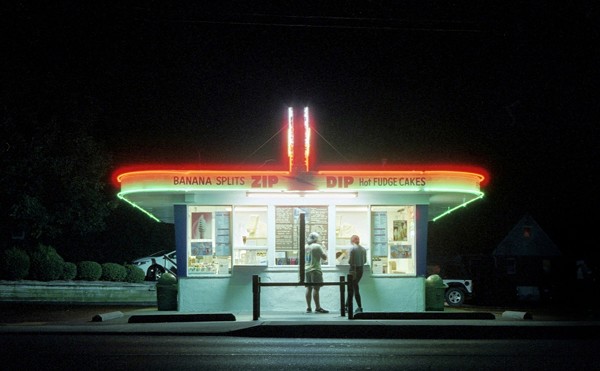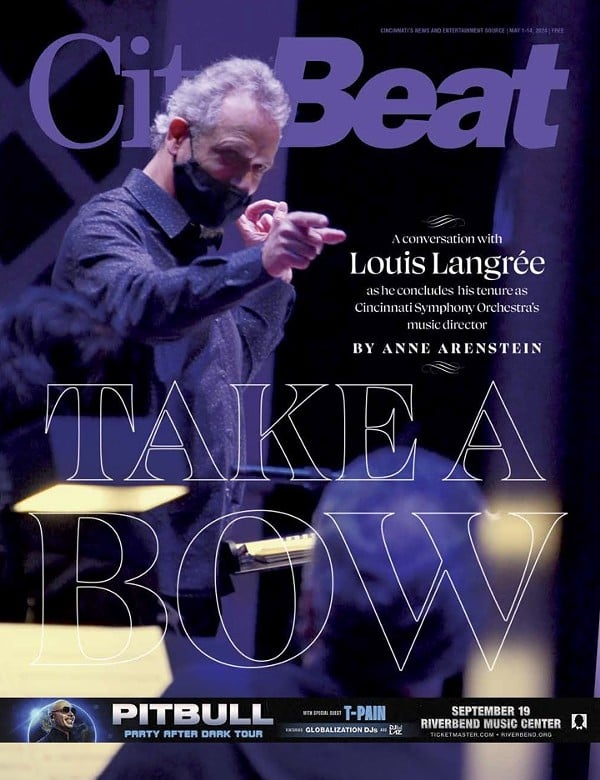It’s useful to know two things going into Charlie Kaufman’s head-trip of a movie, Synecdoche, New York. “Synecdoche” is a literary term, referring to the part being representative of the whole — as in “Times Square is New York City.”
Also, Kaufman as a television and film writer — from Chris Elliott’s Get a Life! through Being John Malkovich, Adaptation and Eternal Sunshine of the Spotless Mind — is very “meta,” letting you know that his characters know that you know that they know that he knows … that everyone knows the fourth wall in drama isn’t a sacrosanct rule but merely a concept to be toyed with at will.
And, wow, does he ever toy with it in Synecdoche! It features Philip Seymour Hoffman as partly frail, partly hypochondriac theater director Caden Cotard, who sets out to use a MacArthur Foundation genius grant to make a tough, uncompromising play about (his) life.
In the process, he re-creates New York City in a gigantic, abandoned warehouse in the city. As the years go on, so do rehearsals — and he becomes increasingly obsessed with having actors mirror his life and relationships even as they unfold. Maybe before they unfold. And as the actors become emotionally involved in the lives they are mimicking, additional actors must then come in to play them, so the whole scenario keeps expanding.
At the same time, Caden — and Kaufman’s film — seems to leap between reality and fantasy in navigating his own life, especially as it relates to his wife (Catherine Keener), daughter Olive (Sadie Goldstein), therapist (Hope Davis), various girlfriends (Samantha Morton and Michelle Williams) and “actors” shadowing him for the never-finished play (Tom Noonan, Dianne Wiest and Emily Watson).
Surprisingly, given the Pirandello-esque conceptual underpinning of Synecdoche, it’s easy to follow. Even as mirror images of characters and their environments begat more mirror images, like the famous cover of Pink Floyd’s Ummagumma album or an M.C. Escher print, it happens in such a visually logical way that you can follow it step-by-step. For all his avant-gardist sensibilities, Kaufman believes in a good, strong narrative. He’s also not a sarcastic or pessimistic ironist who wants to remind us that life is just to die. He’s a humanist at heart. As is Caden.
And because you care about Caden (thanks to Hoffman’s empathetic performance), you want to follow the film, even when the repetition ultimately starts to spiral around itself and become tiresome toward the end. It helps that the set design, special effects and cinematography are superior — the world inside the hangar is like a colossal indoor theme park.
Maybe because Hoffman came up through character acting, and looks neither particularly young nor old, he’s able to let his character effectively age without relying solely on the makeup to do the job. He’s also, by now, so used to playing smart characters (Capote and The Savages are recent examples) with an edge that he can do it without trying to impress us with their (or his) intelligence. He doesn’t come on too strong.
Kaufman surrounds him with a who’s-who of respected actresses (as well as the exuberant Noonan) with a penchant for indie film, all of whom are very good. The cast list reads like a highlight reel of past Independent Spirit Award nominations.
Perhaps making the biggest impression among Synechdoche’s actresses is Morton, who plays Caden’s buxom, teasing mistress Hazel, whose soft, happy-sad voice keeps threatening to fade away in mid-sentence. Their scenes together are pure joy, like something out of a romantic screwball comedy from the 1930s. At least until Caden’s insecurities — and the aging process — intervene.
There’s so much here that’s intriguing, challenging and visually arresting, as well as so much delightful acting, that the repetitious stretches, overreaching and vaguely maudlin ending aren’t that bothersome.
In fact, whatever its weaknesses, this is must-viewing for the art-house crowd. Thank God there are still directors trying to solve the meaning of life, as well as the potential of film, as if nobody’s ever tried before. Grade: B plus
Opens Nov. 14. Check out theaters and show times, see the film's trailer and find nearby bars and restaurants here.





